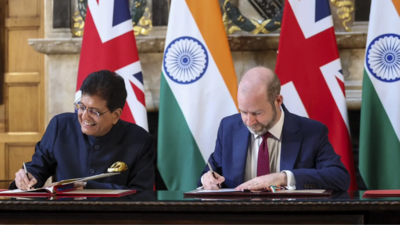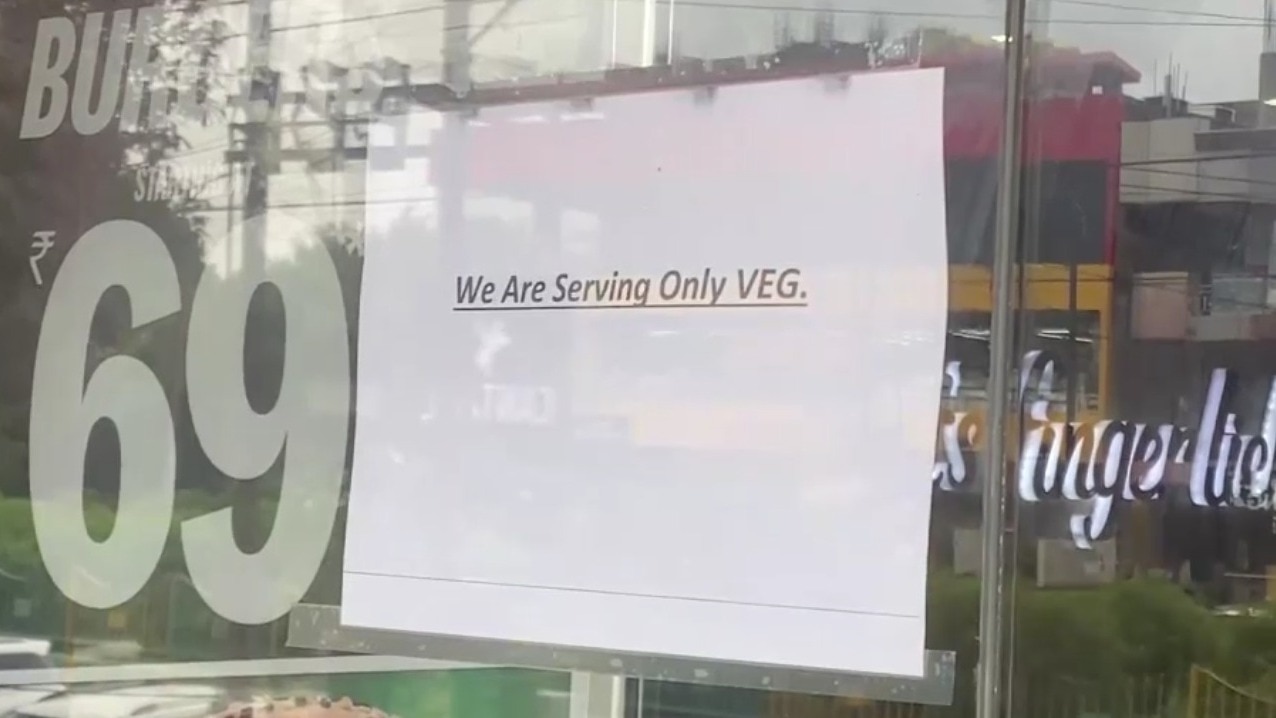ARTICLE AD BOX

Union commerce minister Piyush Goyal and his British counterpart Jonathan Reynold during the signing of the Comprehensive Economic and Trade Agreement (CETA), in the UK.
NEW DELHI: Government has agreed to cut tariffs on thousands of products imported from UK - from chocolates and cosmetics to cars, silver and Scotch - but reduction and elimination of customs duties will not translate into the entire benefit being passed on to consumers.To begin with, customs duty is only the basic cost of the landed price for an Indian seller. On top of that are local levies - GST or excise - which even an Indian manufacturer has to pay. And, this can be a significant portion of the final price.Take the case of alcohol, for instance, where the landed price of a bottle of the popular Johnnie Walker Black Label is estimated at around Rs 350, which at 150% customs duty sees a levy of Rs 525.
On top of that, there is a 200% margin for the importer, the company, in most cases - which means an addition of around Rs 750 - taking the landed price to Rs 1,275. Then comes excise of 85% or Rs 1,084 and VAT of 25% (Rs 590), taking the wholesale price to Rs 2,950.
Then comes the retail margin, pushing the cost in a market like Delhi to over Rs 3,000 a bottle.The actual price reduction for a customer will only be Rs 200-300 a bottle, a top industry executive told TOI while predicting a higher margin for companies.
That's especially true for Made-in-India whisky, which blend anywhere between 1% and 25-30% Scotch imported in bulk form. "Going forward, for several MNCs operating in India, bottling in India may not be a great idea and they will simply import bottles of blended whisky," the source said.A similar situation is likely to play out in other sectors such as cosmetics too, where companies will see improved margins, said marketing executives.
There is no mechanism for govt to ensure the full benefit is passed on. Although it tried to ensure the window is no longer available under GST and in any case, companies dragged authorities to court, questioning the calculations.In segments such as automobiles, competition from players will drive pricing behaviour, as will other trade agreements. For instance, with the EU deal in the pipeline, a German carmaker or Tesla may just lower domestic prices significantly to grab a bigger pie of the market.With duty reduction in several segments staggered over 10 years, price cuts are not on the immediate horizon.



.png)
.png)
.png)
















 1 day ago
7
1 day ago
7







 English (US) ·
English (US) ·